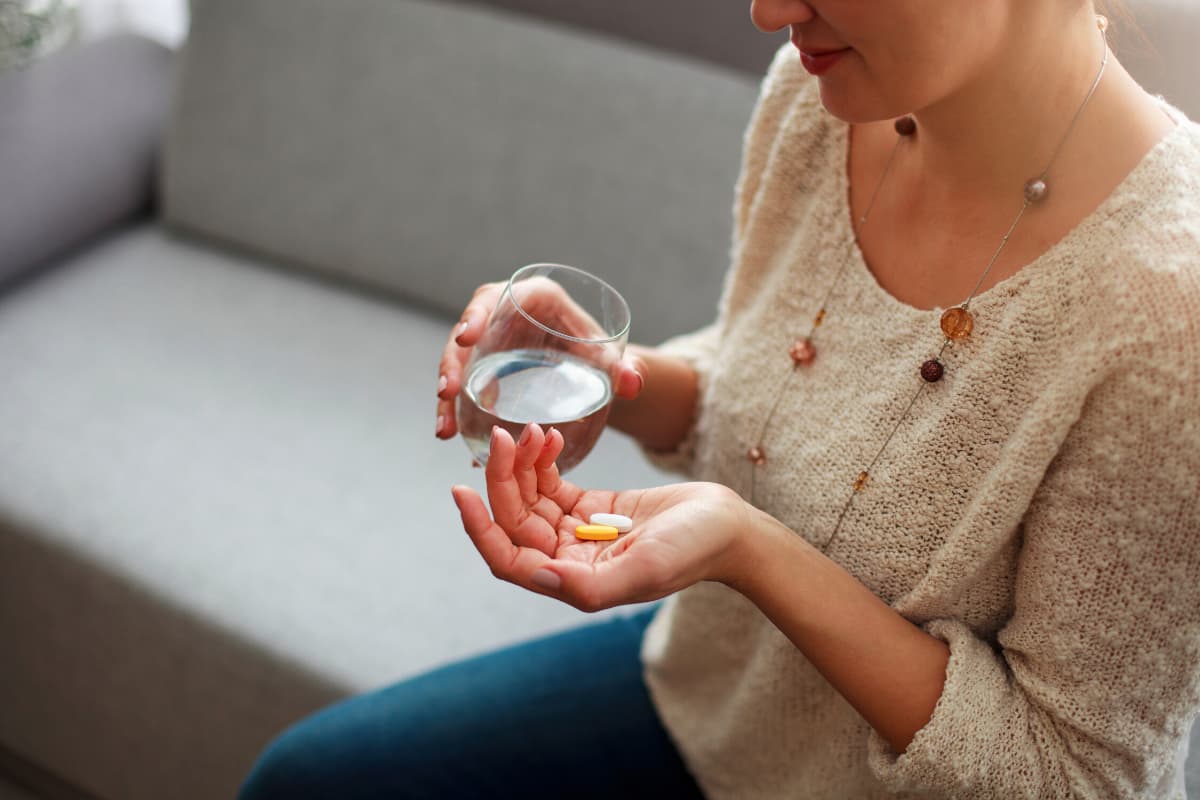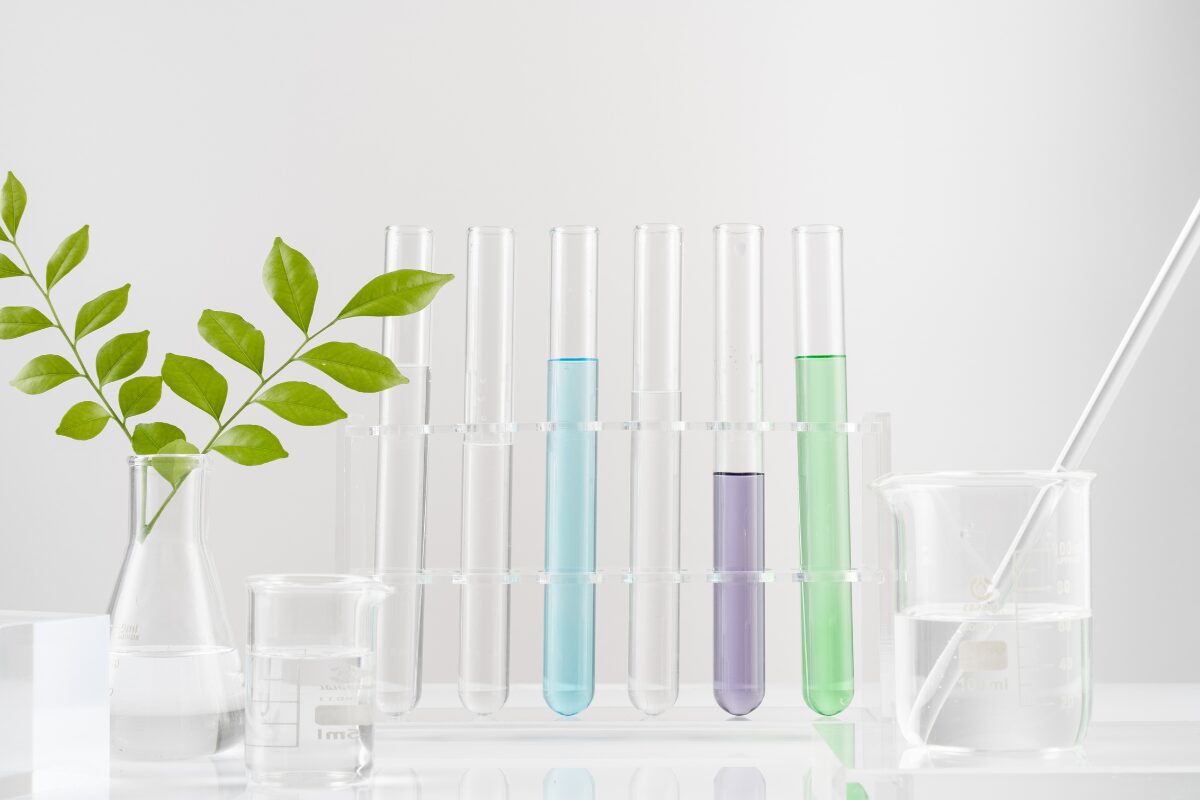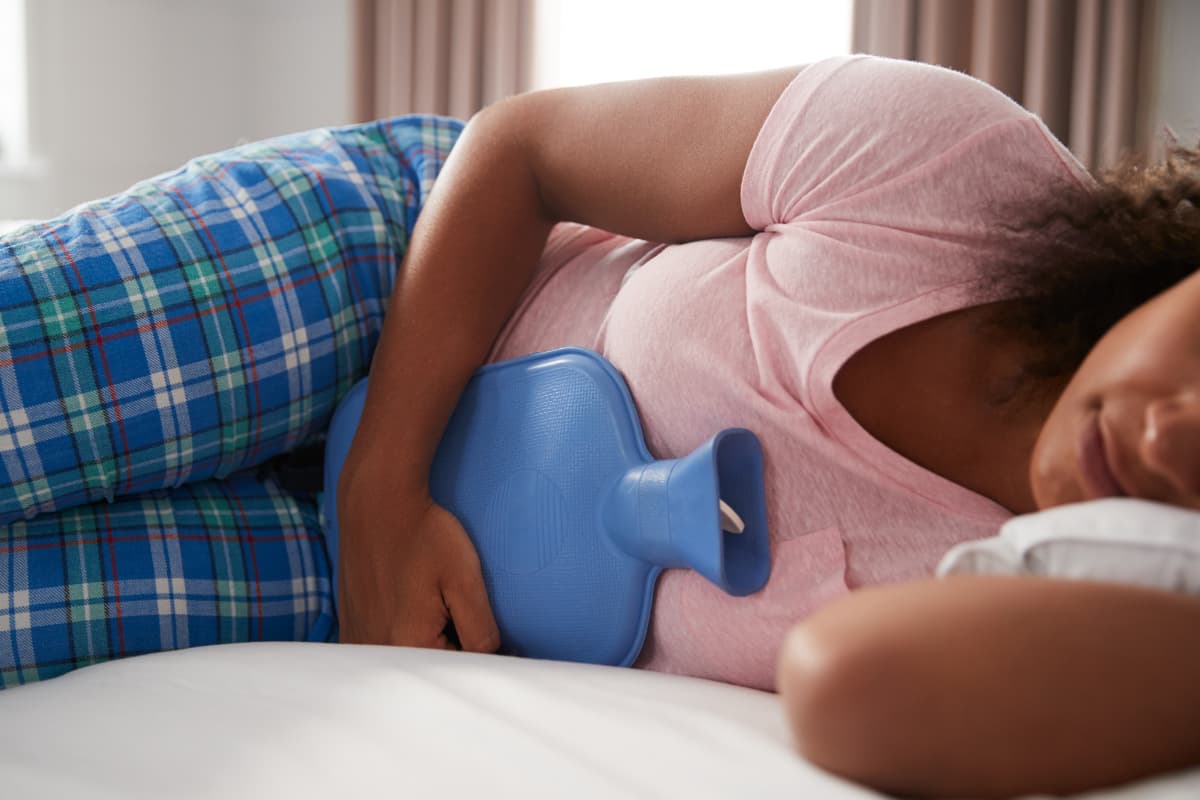Are Menopause Supplements Effective?

When faced with the challenges of menopause, many people become interested in exploring every available option when it comes to taking charge of their health and well-being. There are many supplements on the market that advertise themselves as natural and holistic ways to treat the symptoms of menopause.
Can they actually help you holistically and naturally address your health concerns safely and effectively? This article, along with our menopause app, will tackle this question and look at the efficacy of popular supplements like black cohosh, evening primrose, red clover, ginseng, and magnesium.
Should You Take Supplements for Menopause Symptoms?
Most supplements lack strong scientific evidence that they help to relieve menopause symptoms or improve health. In many cases, researchers report that supplements have a strong placebo effect. The placebo effect is when a person’s physical or mental health appears to improve after taking a placebo or ‘dummy’ treatment. However, there is no true therapeutic benefit.
There’s little information on the long-term safety of dietary supplements, and some can have harmful side effects or interact with the medications you are taking. It’s of utmost importance that you check for any contraindications before taking anything that hasn’t been prescribed to you.
Are Menopause Supplements Safe?
Just because a substance is natural doesn’t mean it isn’t full of powerful chemicals that can have significant effects on your body. Side effects in varying degrees of severity are not unheard of with herbal medicine. Reactions from mild allergies and stomach upset to internal bleeding have been reported by people taking herbal medicines.
Some herbs can cause liver toxicity if taken in too high of a dose, and many herbal medicines interfere with prescription medications. If you communicate with your prescribing clinician about any supplements you want to take, you can come to a decision together about whether or not it’s safe for you.
Buyer beware. There are many products on the market targeting women facing menopause. Not all of them are effective, and some might be flat-out scams. In the U.S., it’s easy for unethical companies to try and make a quick buck without maintaining safety and purity standards in their supplements.
In the United States, the nutraceutical industry has very little oversight. The FDA does not make claims about supplements as medicine but rather as food products. Regarding herbs and vitamins, the FDA holds supplement producers to the basic safety standards listed under the guidelines of the Dietary Supplement Health and Education Act of 1994 (DHSEA,) but there is no overarching standardized regulatory body for herbal medicine and vitamins in this country.
If you are going to take supplements, you will need to research brands and be selective. It’s in your best interest to choose well-respected and trusted brands to ensure that you’re ingesting high-quality ingredients in the appropriate dose.
If you are taking hormone therapy (HT), some supplements might not be appropriate for you. Communicate with your healthcare provider to see if it’s safe to supplement while on HT.
What Supplements for Menopause Symptoms are Available?
There are many vitamins and herbs that have been touted as helping menopause symptoms. Following are some of the most popular, especially for managing hot flashes.
Black Cohosh
Black cohosh is the most widely studied of herbal remedies. The studies have produced mixed results, although some women report black cohosh has helped them. There is some concern that blue cohosh (not black cohosh) may be associated with liver damage. It is not known for sure if blue cohosh actually causes liver damage. Black cohosh also interacts with many prescribed medications and should not be used at the same time as other herbs. According to the National Center for Complementary and Alternative Medicine, some commercial black cohosh products have been found to contain the wrong herb or to contain mixtures of black cohosh and other herbs that are not listed on the label.
Red Clover
This herb has had no consistent or conclusive evidence in controlled studies that it was found to reduce hot flashes. As with black cohosh, some women claim that red clover has helped them. Studies report few side effects and no serious health problems with use. But studies in animals have raised concerns that red clover might have harmful effects on hormone-sensitive tissue.
Dong Quai
Dong Quai has been used in Traditional Chinese Medicine to treat gynecologic conditions for more than 1,200 years. Yet only one randomized clinical study of Dong Quai has been conducted to determine its effects on hot flashes, and this herbal remedy was not found to be useful in reducing them. The North American Menopause Society states that Dong Quai should never be used by women with fibroids or blood-clotting problems such as hemophilia or by women taking drugs that affect clotting, such as warfarin (Coumadin) as bleeding complications can result.
Evening Primrose Oil
This herbal remedy is also said to relieve hot flashes. Recent research has shown it to be effective in reducing the frequency and severity of night sweats but offered no significant relief for hot flashes. Evening Primrose is considered safe in recommended doses. Reported side effects include inflammation, problems with blood clotting and the immune system, nausea, and diarrhea. It has been shown to induce seizures in patients diagnosed with schizophrenia who are taking antipsychotic medication. Evening primrose oil should not be used with anticoagulants or phenothiazines (a type of psychotherapeutic agent).
Phytoestrogens
Phytoestrogens are estrogen-like substances found in some cereals, vegetables, legumes (like soy), and herbs. They have not been consistently shown to be effective in studies, and their long-term safety is unclear.
Valerian Root
Valerian Root contains phytoestrogens, and a small study found it to be effective in reducing the frequency and intensity of hot flashes. However, phytoestrogens are controversial, and researchers recommend additional research to confirm the safety and effectiveness of phytoestrogen-based herbal remedies. Valerian is also believed to help with sleep, but the evidence is inconsistent.
Licorice Root
Licorice root was evaluated for hot flash relief in a small study where it was found to relieve the frequency and intensity of hot flashes. In large amounts and with long-term use, licorice root can cause high blood pressure and low potassium levels, which could lead to heart and muscle problems. More research is needed to determine its effectiveness and safety for hot flashes.
Ginseng
Ginseng, also known as Panax ginseng, contains phytoestrogens, and experts say that it can have a positive impact on hot flashes and mood in menopause. There may be some safety concerns when taken for longer than six months at a time, and it does have some known drug interactions.
Magnesium
Magnesium is an important mineral for our bodies throughout our life cycle, but it may offer some extra benefits for women in menopause. Magnesium plays a role in mood regulation, bone health, and hormone regulation, among other things. More research is needed, but it appears that magnesium supplementation can improve depression, bone density, and sleep and possibly even offer some cardiovascular protection in menopause. Magnesium is considered safe, and the main side effect is stomach upset and diarrhea. It can lower the efficacy of some antibiotics and is known to interact with some medications.
Safety First
It may be tempting to try supplements to manage menopause symptoms. Who wouldn’t want fast and easy relief? However, you may have noticed a theme running through this article. The nutraceutical industry is highly unregulated, and many supplements don’t have a lot of evidence that they improve symptoms and may be harmful. If you’re interested in using dietary supplements of any kind, first educate yourself about any potential side effects and interactions, the mixed evidence on its efficacy, and other safety considerations. Speak with your healthcare provider to ensure you won’t experience any negative effects.
For more information on supplements, including top safety tips, download Midday from the App Store.
Jennifer Turkyilmaz, RN, BSN, is a medical writer who worked for many years in women’s health as a high-risk pregnancy nurse. She is also a newly menopausal woman who wishes she had known more about what to expect before it happened to her.
Sign up for more unique women’s health content
By submitting this form, you agree to the Lisa Health Privacy Policy and Terms of Use


